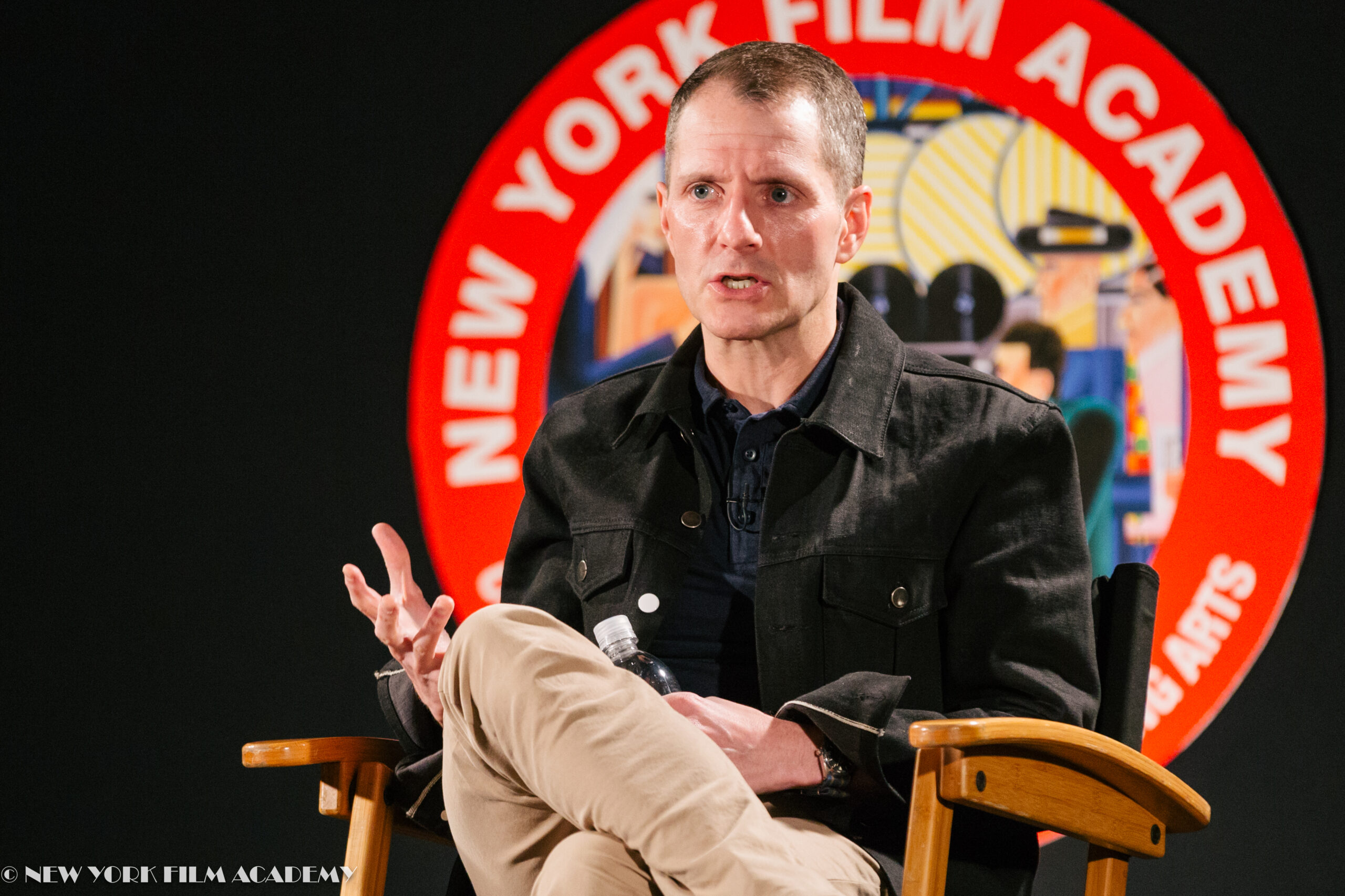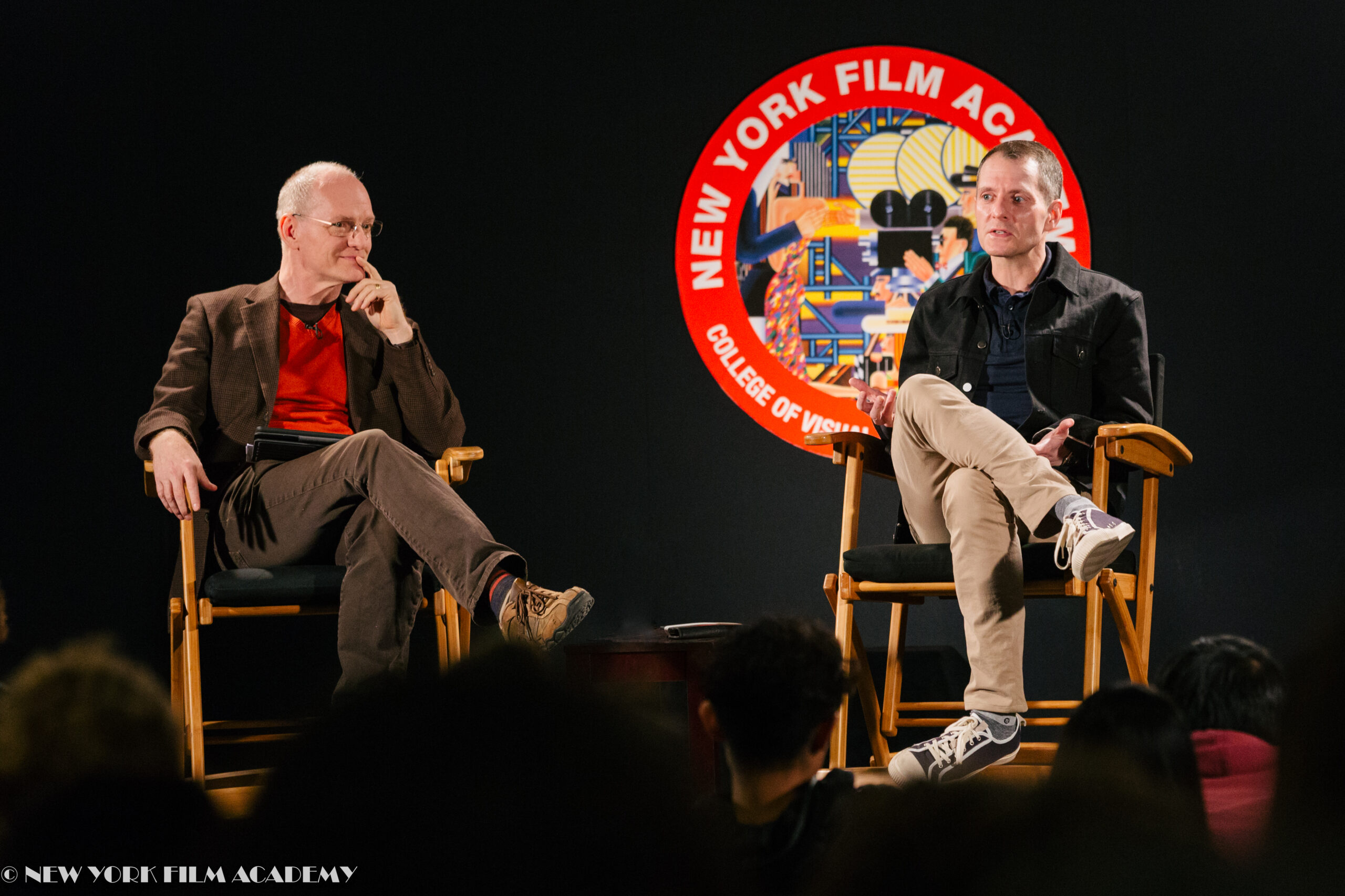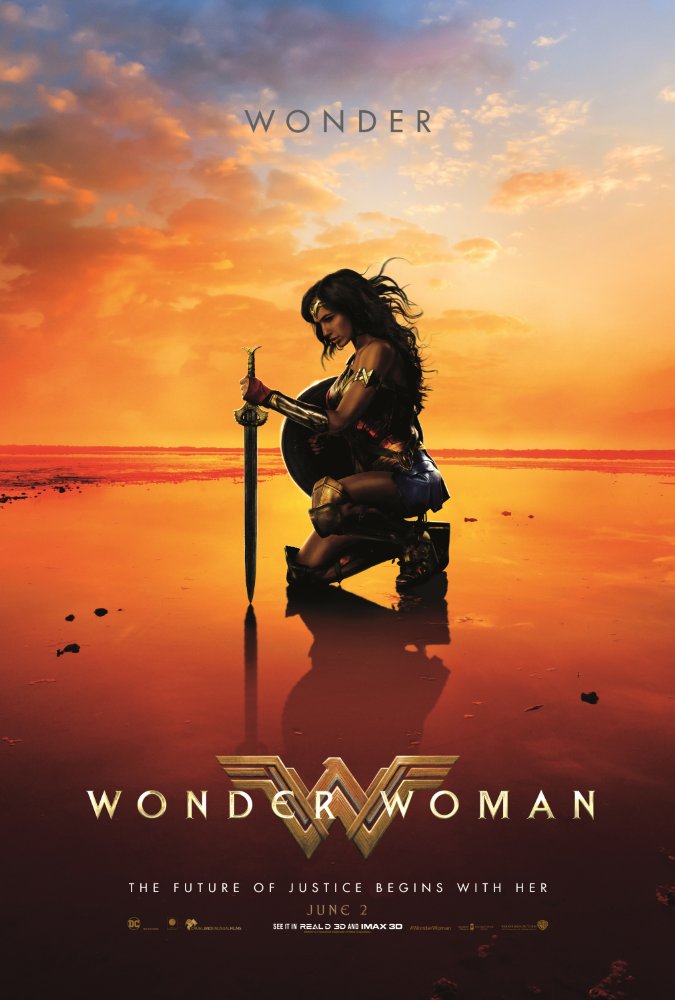The New York Film Academy was proud to welcome Wonder Woman screenwriter Allan Heinberg to its Los Angeles Campus.
Heinberg has written for Party of Five, Sex in the City, The OC, Grey’s Anatomy, and Gilmore Girls. He is also the creator and showrunner of The Catch. Outside of television, Heinberg has worked for DC comics, writing The Young Avengers, Justice League, and the 2005 reboot of Wonder Woman.
Heinberg regaled students with the tale of how he was hired to write the Wonder Woman film. He first saw the character of Wonder Woman, aka Diana Prince, on an episode of Super Friends. He was seven. A few years later, when Linda Carter burst on television screens in the 1970s, Heinberg was hooked. The very first play he wrote after graduating college featured Wonder Woman. After that, Heinberg moved to Los Angeles and immediately began working in television.
After years of working on Grey’s Anatomy, Heinberg began looking for a new project. There was a Wonder Woman feature in development but Heinberg did not consider applying. He explained, “Usually, there’s a big wall between movie writers and television writers … It is a big risk for a television writer to be asked to work a large tent-pole film. They just don’t do that.”
Heinberg was happy to cheer on his friend (and President of DC Comics) Geoff Johns as he worked to develop the Wonder Woman film for Warner Brothers. After about a year, Johns called Heinberg and told him that his team had hit a wall in the writing process. Producer Zack Snyder wanted to start over from the beginning.
Snyder and Johns brought their teams together to explore the fundamentals of Wonder Woman. When it came time to decide who would have a seat at the table, Johns said he didn’t want anyone except Heinberg. Snyder agreed and the brain trust that created the final screenplay was formed.
Heinberg listened as Synder explained the finer details of the project. Snyder broke down what the team had been preparing. Heinberg knew what story he wanted to tell. He said, “For me, there’s really only one essential Wonder Woman story and that’s her origin story.”
One of the major problems most writers run into when writing Wonder Woman is that her origin story does not typically contain the deeply personal, emotional hook — like a terrible crisis or loss to overcome — typical in a hero’s origin. For example, in contrast, Batman’s parents are murdered and, as he grows up, he is driven to protect his entire city from feeling that same pain. Similarly, Superman was orphaned and his home planet was destroyed, so he spends the rest of his life protecting his new home and the people in it. In the case of Wonder Woman, Diana Prince was molded from clay by her mother, Hippolyta, and grew up in a women-only utopian paradise, where the powerful Amazons live independently from the world and evils of mankind.
Using references like Splash and The Little Mermaid, Heinberg described Diana’s origin myth, where she leaves Themyscira to save mankind. Heinberg referred to it as a fish-out-of-water story. The comparison resonated with Snyder. By the end of the first meeting, everyone agreed that Heinberg’s version of Wonder Woman’s origin was the right direction to take the film.
Over the next three days, they constructed a story and broke down a script so Snyder could pitch it to the studio. It was green-lit on the fourth day. The film already had a release date. Now, Snyder wanted Heinberg to write the script.
The only problem was that Heiberg had a job. He was still a part of the Shondaland family after moving from Grey’s Anatomy to Scandal, and it was the middle of the season. Heiberg wasn’t sure how he was going to be able to do both the show and the film. So, he had to speak with Shonda Rhymes. He was convinced she would say no. With two more years on his contract, Heinberg fully expected to have to walk away from his dream job.
When he walked into her office, Rhymes thought he was going to quit. When he told her the news, she said simply, “It’s Wonder Woman. You have to do it.”
Heinberg was adamant that no other showrunner would have afforded him this opportunity, and says the moral of this tale is that none of this could have happened if it wasn’t for the relationships he’d previously built with his colleagues. He described Snyder as his hero for championing his vision of the film. It’s not a typical superhero film: Wonder Woman focuses on the human relationships, as opposed to the hero and villain aspect of the genre.
During the Q & A portion of the Guest Speaker event, one NYFA student asked, “How do you think the success of Wonder Woman has changed the way people will write women in the future?”
Heinberg gave a cheeky response, stating, “Well, Wonder Woman has made a lot of money.”
One obvious change is that more women-centered films in the superhero genre are being green-lit this year. Harley Quinn, Batgirl, and Captain Marvel will all be getting feature films soon.
“There’s an audience we can serve,” said Heinberg. “I don’t think the formula that made Wonder Woman can be replicated. You need to come up with a compelling and emotional story that can stand up on its own.”
The New York Film Academy would like to thank Allan Heinberg for taking the time to speak with our students. Wonder Woman is now available on DVD.



